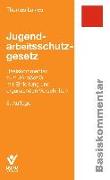Bibliotheca Indica
BücherAngebote / Angebote:
Excerpt from Bibliotheca Indica: Collection of Oriental Works Published Under the Superintendence of the Asiatic Society of Bengal, Nos. 60, 74, 88, 97, 130, 144, 159, 169, 203, 226 and 263Judged by their subjects, the two appendices or even more pointedly different. The Aranyakas, with the exceptions before alluded to, are all but purely liturgical, treating of csrcmonials which have not been included in the Brahmanas, or. Offering ex planations and illustrations with reference to rites already there described, but not so fully as they should have been. Not unoften do they enter into discussions regarding particular tepics of liturgical interest which require elucidation, though the rites to which they refer do not form a part of their subj sets. In short, they form supplements to the Vedas, and are intended principally to supply their omissions. Whereas the Upanishads are totally independent of the texts to which they profess to be appendices, and evince no compunction even to openly con demn the ceremonials they teach as worthless, and unworthy the attention of wise men. They are in fact rivals which incul cate a new doctrine of salvation, and not subordinates or 00 labcurers working for a common object. Thus, for instance, while the Chh andogya Brahmana supplies the mantras for the celebration of the marriage rite, the Upanishad of that name, which professes to be the last eight chapters of that work, declares that the three Vedas, i. E. The Saiihités and the Brah manas, are insufficient to afford true knowledge, and that those who wish for salvation should, forsaking them, resortto the Upanishads for help.' The Mundaka describes the knowledge of the Vedas as secondary or inferior (apard), and that of the Upanishads the highest (para)? The Taitti rfya Upanishad, which forms the 7th, 8th and 9th chapters of the Aranyaka of that name, in the same way condemns the teachings of the Vedas, not excepting that of the first six chapters of the work of which it forms a part, to lead the student on to an intellectual form of worship, in which Indra, Vayu, and Agni yield their places to Mahabrahma, and the oblations and offerings of the Vedas to re¿ection, contempla tion and meditation.About the PublisherForgotten Books publishes hundreds of thousands of rare and classic books. Find more at www.forgottenbooks.comThis book is a reproduction of an important historical work. Forgotten Books uses state-of-the-art technology to digitally reconstruct the work, preserving the original format whilst repairing imperfections present in the aged copy. In rare cases, an imperfection in the original, such as a blemish or missing page, may be replicated in our edition. We do, however, repair the vast majority of imperfections successfully, any imperfections that remain are intentionally left to preserve the state of such historical works.
Folgt in ca. 10 Arbeitstagen

